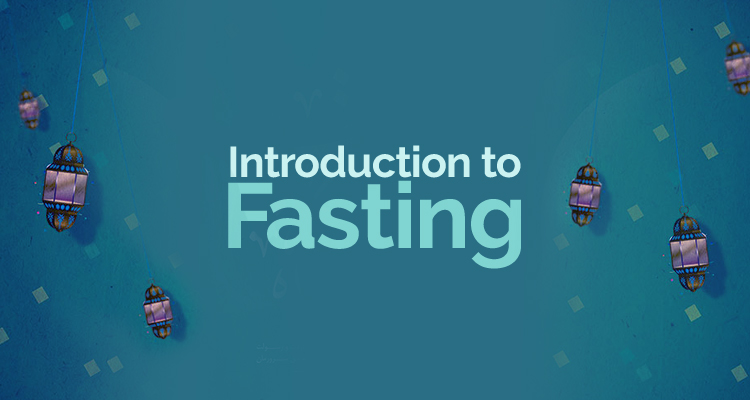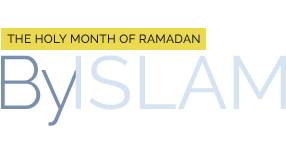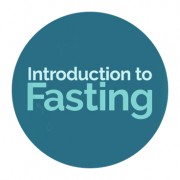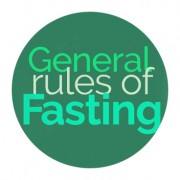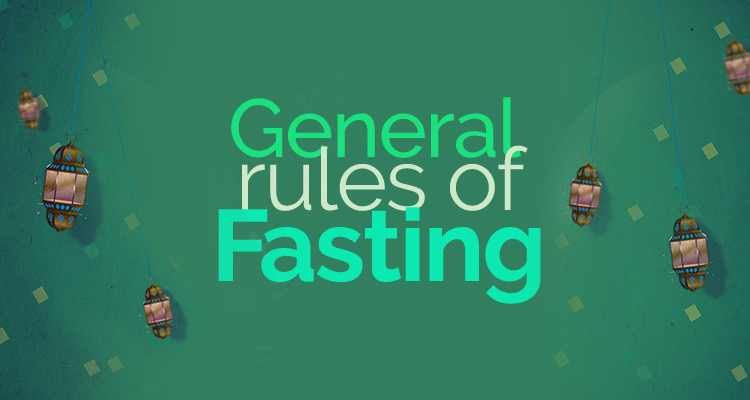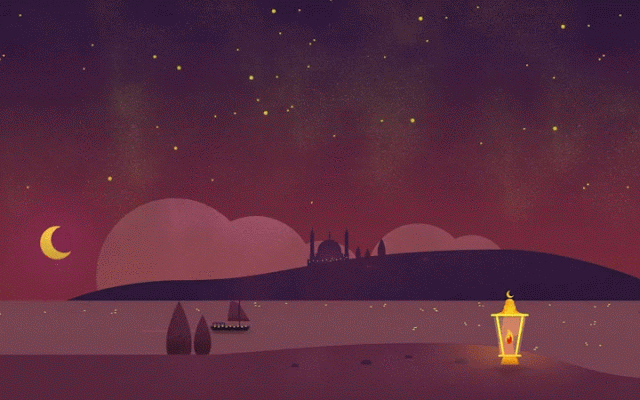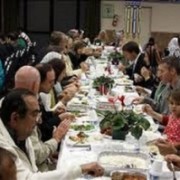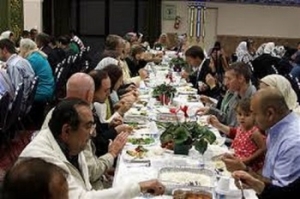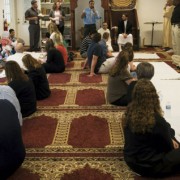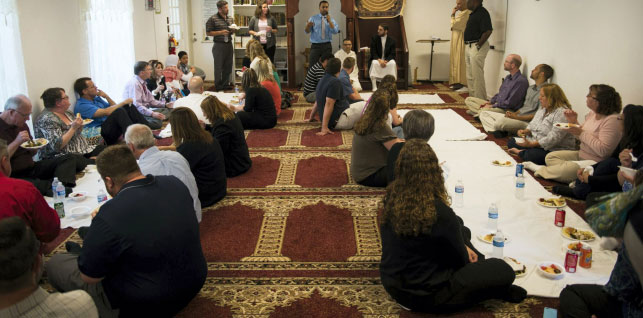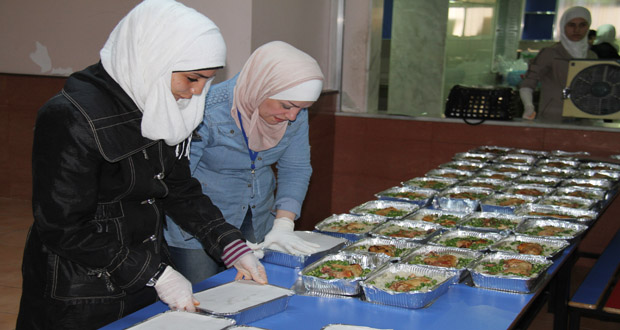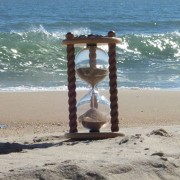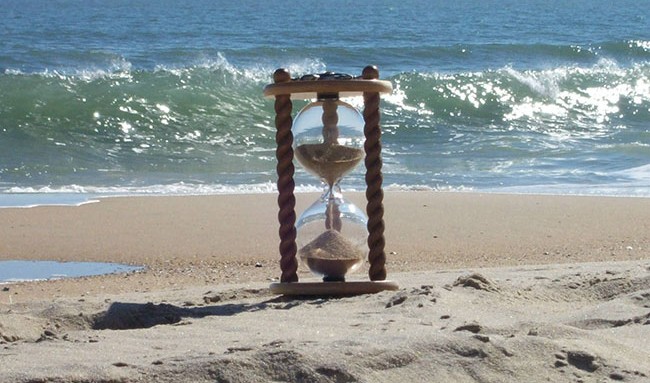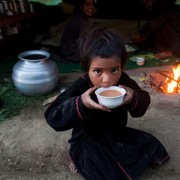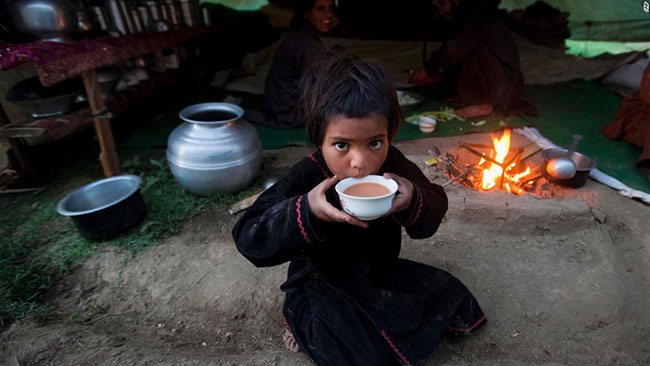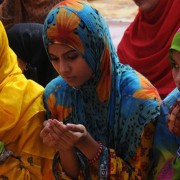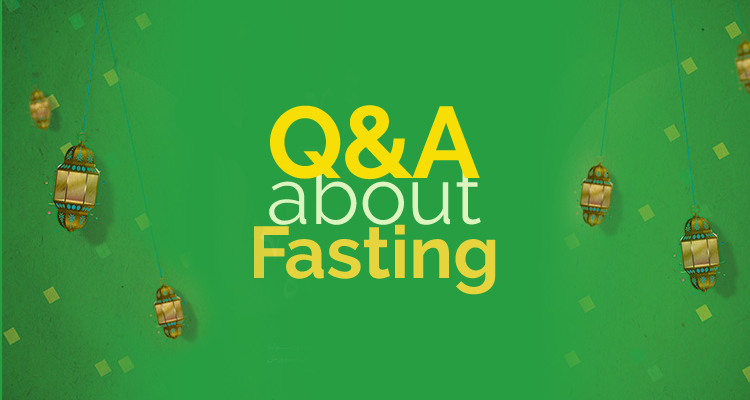
Question: Some people come to a city with the intention of residing therein for some years for a specific purpose [e.g., education] During this time, they do not leave their own home-towns for good. When the specific purpose is accomplished, they leave that city and go to wherever they like. How should they do their salãt and how should they fast [in that city]?
Answer: They shall pray fully; they can fast after having lived in that city for a month just as they do in their own home-towns.
[su_divider top=”no” style=”dotted” divider_color=”#c8e1e7″ size=”2″ margin=”35″]
Question: Is it permissible to rely on the European observatories [i.e., non-Muslim experts] for determining the timings of true dawn, sunrise, noon, and sunset for the whole year, including the month of Ramadhãn, knowing well that it is scientific and very precise to the minutes and seconds?
Answer: If one is sure of the correctness of their timings, it is permissible to act upon it. However, one should know that there are some differences in determining the true dawn especially in some of the cities in [northern] Europe [and Canada]; therefore, it is necessary to ascertain that it is based on the proper view.
[su_divider top=”no” style=”dotted” divider_color=”#c8e1e7″ size=”2″ margin=”35″]
Question: In some cities, the sun does not rise at all for days or does not set at all for days or even more. How should we pray and fast?
Answer: As for salãt, one should, as a matter of obligatory precaution, observe the closest place that has night and day in a twenty-four hour period, then say salãt according to its timings with the intention of mutlaqa [i.e., just qurbatan ilal lah without specifying whether it is ada (on time) or qadhã (after time)]. As for fasting, it is obligatory upon you to move during the month of Ramadhãn to another city where you can observe fasting of this holy month, or move to that city after that month to perform it qadhã.
[su_divider top=”no” style=”dotted” divider_color=”#c8e1e7″ size=”2″ margin=”35″]
Question: Can a person who is fasting in the holy month of Ramadhãn serve food to non-Muslims?
Answer: By looking at the issue on its own merit, there is no problem in it.
[su_divider top=”no” style=”dotted” divider_color=”#c8e1e7″ size=”2″ margin=”35″]
Question: Would use of a nozzle spray that facilitates breathing invalidate the fast?
Answer: If the spray that comes out of the nozzle enters the respiratory tract and not the passage of food and drink, it does not invalidate fast.
[su_divider top=”no” style=”dotted” divider_color=”#c8e1e7″ size=”2″ margin=”35″]
Question: Does the nutrition given, intravenously invalidate fast irrespective of whether or not it was absolutely necessary for the patient?
Answer: In both the cases, it does not invalidate the fasting.
[su_divider top=”no” style=”dotted” divider_color=”#c8e1e7″ size=”2″ margin=”35″]
Question: Does masturbating during daytime of Ramadhãn invalidate the fast, regardless of whether or not it leads to ejaculation? What is the penalty that should be incurred by one who does so? What is the ruling for a woman who engages in masturbation during daytime of Ramadhãn, irrespective of whether or not it leads to discharge?
Answer: If a person masturbates with the intention of ejaculating and actually ejaculates, his fast is rendered invalid and he must make it up by way of qadhã as well as pay the penalty (kaffãra) which is fasting for two successive months or feeding sixty poor people. If he masturbates with the intention of ejaculating but does not ejaculate, he must complete the fast with the intention of pleasing the Almighty and then do it qadhã.If he masturbates without the intention of ejaculating and he does not normally ejaculate, knowing that discharge is probable and it actually happens —he has to do qadhã without the penalty. However, if such a person was confident that no discharge would take place and it actually happens — no qadhã is required. In all these cases, there is no difference between a man and a woman.
[su_divider top=”no” style=”dotted” divider_color=”#c8e1e7″ size=”2″ margin=”35″]
Question: A believer fasts but does not know that intentionally getting into state of janãbat invalidates fasting—what should he do [when he finds out]?
Answer: It is obligatory on him to make up those fasts; however, there is no penalty on him as long as he was [erroneously] convinced that being in a state of janãbat does not invalidate fast or was unaware of that ruling.
[su_divider top=”no” style=”dotted” divider_color=”#c8e1e7″ size=”2″ margin=”35″]
Question: According to some jurists, a person who intentionally invalidates his fast during the month of Ramadhãn by committing a sin has to pay all three kinds of penalty [that is, fasting for sixty days, feeding sixty poor people, and emancipating a slave]. What should a person therefor do during our time when emancipating a slave is impossible since there are virtuallyno slaves?
Answer: The penalty of emancipating a slave is waived when it is no more possible. It should, however, be clarified that in our view, it is not obligatory to pay all three kinds of penalty for invalidating a fast during Ramadhãn by committing a sin. And Allãh knows the best.
[su_divider top=”no” style=”dotted” divider_color=”#c8e1e7″ size=”2″ margin=”35″]
Question: If the new moon is sighted in the East, does it apply to us also in the West? And if it is sighted in America, does it apply to Europe also?
Answer: If the new moon is sighted in the East, it also applies to the West as long as the latitude of the two locations are not greatly further away from one another. If the new moon is sighted in the West, it does not apply to the East unless it is proven—even by the moon staying on the first [Western] horizon for the length of time that is longer than the difference between the sunset of the two locations. [For example, if the sunset in the Eastern city was half an hour before the Western city where the moon was sighted, and the moon stays on the horizon longer than half an hour —the Eastern city can follow the moon sighted in the Western city.]
[su_divider top=”no” style=”dashed” divider_color=”#c8e1e7″ size=”2″ margin=”35″]
In Minhãju ’s-Sãliheen, it says: “The new moon is proven through the knowledge acquired by sighting or recurring reports etc., and through credible reports of its sighting, etc.” In ruling No. 1044, it says: “If the new moon is sighted in a city, it is sufficient for other cities, provided they share the same horizon, in the sense that the actual sighting in the first city would necessarily be followed with the sighting in the second city if there were no barriers like clouds, fog, mountains, etc.”
In the light of what has been quoted, the following questions arise:
Question: Would the sighting of the new moon in cities in the East like Iran, Ahsã’, Qatíf [both in Arabia], other countries in the Gulf, Iraq, Syria, and Lebanon necessarily be followed by its sighting in Western countries like England, France and Germany if there were no barriers like clouds and fog?
Answer: Yes, the sighting of the new moon in an area would necessarily be followed —provided there were no barriers— in places which are located to its west as long as they are not far apart on the latitude lines.
[su_divider top=”no” style=”dotted” divider_color=”#c8e1e7″ size=”2″ margin=”35″]
Question: If the answer to the previous question is positive, would the occurrence of the sighting of the new moon in the view of some religious scholars in Eastern countries be a sufficient evidence for one who is residing in Western countries even though the sighting of the new moon did not occur in those places for lack of clear skies?
Answer: It will not be a sufficient evidence for him or for others. However, if the occurrence of the sighting from the view point of those religious scholars attracts trustworthiness in that person that the moon was actually sighted or proof was established about the sighting without any counter proof —even in the form of a ruling— that person can act on what he believes is true.
[su_divider top=”no” style=”dotted” divider_color=”#c8e1e7″ size=”2″ margin=”35″]
Question: During certain months, it is declared that the sighting has been proven according to some religious scholars in some Eastern countries. This is based on the testemony of those who have sighted the new moon. Such declarations are usually coupled with the following facts: The witnesses who sighted the moon and who number around thirty, for example, are scattered in various cities such as 2 in Isfahan, 3 in Qum, 2 in Yazd, 4 in Kuwait, 5 in Bahrain, 2 in Ahsã’, and 6 in Syria, etc. The sky was clear in a number of cities in the West, and the believers went out in the attempt to sight the moon; and there was nothing preventing the sighting. The observatories in England announced that it was impossible to sight the new moon that evening in England except by using a telescope; and that its sighting with the naked eye would be possible only in the following night. So, what is the ruling in such a case? Please guide us, may Allãh reward you.
Answer: The criterion is the satisfaction of the individual himself [1] about the actual sighting [of the new moon] or [2] the proof of sighting without any counter claim.In the case mentioned above, satisfaction is not normally achieved concerning the appearance of the new moon on the horizon in such a way that it could have been sighted by the naked eye. On the contrary, one is satisfied that it was not sighted and that the testimony [of sightings in the Eastern cities] is based on illusion and error in sight. And Allãh knows the best.
[su_divider top=”no” style=”dotted” divider_color=”#c8e1e7″ size=”2″ margin=”35″]
Question: I have a daughter who has attained the age of puberty and she must fast according to Islamic law but she is too weak to fast. How should she go about fasting?
Answer: A person cannot abandon fast on account of weakness. However, if she is so weak that fasting becomes totally unbearable, there is no objection to her breaking the fast. However, the necessary precaution is that she should suffice to eating and drinking to the extent of necessity only and she should also observe the qadha after the month of Ramadhan and she will not be liable to any kaffara.
[su_divider top=”no” style=”dotted” divider_color=”#c8e1e7″ size=”2″ margin=”35″]
Question: I am a worker working daily for a construction company. Given that we are in a hot season of the year and the days are long, can I give up fasting and observe the Qadha later?
Answer: If fasting prevents him from doing work as the sole source of earning of his livelihood i.e. it causes him weakness to the extent that he is unable to fast or causes excessive thirst, making it unbearable for him to fast, hence, if it is possible to change his work or to leave work during the month of Ramadhan using his savings or borrowing money from someone, he should make niyyah of fasting at dawn and should abstain from eating and drinking until it becomes extremely difficult to fast in which case it is permissible to eat or drink at the time of extreme hunger and thirst, respectively, and the precaution is that he should suffice to the necessary amount (of food or water). He should continue fasting for the rest of the day, and he should also observe the qadha of that day after the month of Ramadhan and he will not be liable to any kaffara (compensation).
[su_divider top=”no” style=”dotted” divider_color=”#c8e1e7″ size=”2″ margin=”35″]
Question: What is the niyyah of fasting? How should one make niyyah of fasting?
Answer: It is not necessary for a person to pass the niyyah for fasting through his mind or to say that he would be fasting on the following day. In fact, it is sufficient for him to decide that in obedience to the command of Allah he will not perform from the time of Adhan for Fajr prayers up to Maghrib, any act which may invalidate the fast. If a person forgot that it was the month of Ramadhan, and takes notice of this before Zuhr and if he has not performed some act which will invalidates a fast and he makes niyyah, his fast is valid. But if he takes notice of this after Zuhr, he should not perform any act till Maghrib which invalidates a fast and should, as an obligatory precaution, also observe qadha of that fast after Ramadhan.
[su_divider top=”no” style=”dotted” divider_color=”#c8e1e7″ size=”2″ margin=”35″]
Question: What are the areas where both Qaza of fast and Kaffarah become obligatory?
Answer: In the following situations, both qadha and Kaffarah become obligatory, provided these acts are committed intentionally, voluntarily and without any force or pressure, during the fasts of Ramadhan:
1. Eating
2. Drinking
3. Sexual Intercourse
4. Masturbation
5. Staying in the state of Janabat till the time of Fajr prayers
And as a recommended precaution, invalidating the fast due to reasons other than those mentioned above, should also be recompensed with Kaffarah, besides the obligatory qadha.
[su_divider top=”no” style=”dotted” divider_color=”#c8e1e7″ size=”2″ margin=”35″]
Question: If a person breaks his oath, what is the penalty?
Answer: If a person takes an oath that he will perform an act (e.g. that he will fast) or will refrain from doing an act (e.g. that he will not smoke), but does not intentionally act according to his oath, he should give Kaffarah for it, which means he should set a slave free, or should fully feed ten indigent persons, or should provide them with clothes. And if he is not able to perform these acts, he should fast for three consecutive days.
[su_divider top=”no” style=”dotted” divider_color=”#c8e1e7″ size=”2″ margin=”35″]
Question: If a person breaks his oath, what is he supposed to do?
Answer: If a person takes an oath that he will perform an act (e.g. that he will fast) or will refrain from doing an act (e.g. that he will not smoke), but does not intentionally act according to his oath, he should give Kaffarah for it, which means he should set a slave free, or should fully feed ten indigent persons, or should provide them with clothes. And if he is not able to perform these acts, he should fast for three consecutive days.
[su_divider top=”no” style=”dotted” divider_color=”#c8e1e7″ size=”2″ margin=”35″]
Question: If a person breaks his oath, what does he need to do in order to make it up?
Answer: If a person takes an oath that he will perform an act (e.g. that he will fast) or will refrain from doing an act (e.g. that he will not smoke), but does not intentionally act according to his oath, he should give Kaffarah for it, which means he should set a slave free, or should fully feed ten indigent persons, or should provide them with clothes. And if he is not able to perform these acts, he should fast for three consecutive days.
[su_divider top=”no” style=”dotted” divider_color=”#c8e1e7″ size=”2″ margin=”35″]
Question: Is it permissible for a “Sayyid” to have Sadaqa for their needs? If it is permissible, then please specify the condition.
Answer: It is permissible for a Hashimi to give his sadaqa to another Hashimi or to a non-Hashimi. This includes both Zakat of property and zakat of Fitra. But it is not permissible for a non-Hashimi to give his Sadaqa to a Hashimi. If a Hashimi receives Zakat of property or fitra from a non-Hashimi, it would be forbidden for him to use it, and he who gives it (zakat), his “Zimma” (obligation) would not be discharged. In cases other than those mentioned above it is permissible for a non-Hashimi to give his Sadaqa, atonement, or Fidya of fast ( kaffara) or any desirable charity to a Hashimi. Yes, if charity given to a Hashimi is too little an amount of property and it is given with the intention of repulsing calamity and evil, there is Ishkaal (objection) in its being permissible.
[su_divider top=”no” style=”dotted” divider_color=”#c8e1e7″ size=”2″ margin=”35″]
Question: I felt so humble and said to my father, “It is time I should fast the month of Ramadhan, and I shall start this year. However, what is the way to knowing that the month has started?
Answer: You should be able to know that by sighting the new moon in your country or nearby countries that share the same horizon; in other words, if the crescent is sighted in one country, it should be seen in the other, were it not for natural barriers, such as clouds, mountainous terrain, and the like.
[su_divider top=”no” style=”dotted” divider_color=”#c8e1e7″ size=”2″ margin=”35″]
Question:What is the Kaffara for breaking one’s fast intentionally?
Answer: One who has broken his fast intentionally he must, in addition to making up the qadha of that day, must fast for two months the first thirty one days in a row. Or he must feed 60 poor Momins to their fill or he must give 750 grams of wheat to each one of them. If none of these is possible for him, he is free to either fast for eighteen days or feed as many poor people as he can. If he cannot do this also, he must ask Allah for forgiveness even if he has to say “Astaghferullah” once. And it is an obligatory precaution that if he is able later, he must give the kaffarah. Of course, the kaffarah is obligatory in the case that his ignorance was not due to his own negligence in learning the rulings. However, if he has grown up in a place that without his own choice, he was unaware of the rulings, then it is obligatory that he must make up that day only.
[su_divider top=”no” style=”dotted” divider_color=”#c8e1e7″ size=”2″ margin=”35″]
Question: If a fasting person belches and swallows intentionally that which comes in his mouth, does he have give Kaffara in addition to the qadha?
Answer: If a fasting person belches and swallows intentionally that which comes in his mouth, his fast becomes void, and he should give its qadha and Kaffarah also. And if the thing which comes to his mouth is haraam to consume, like, blood or some food which no more looks like food, and he swallows it intentionally, he will give the qadha of that fast, and as a recommended precaution, give all the three Kaffarah.
[su_divider top=”no” style=”dotted” divider_color=”#c8e1e7″ size=”2″ margin=”35″]
Question: What is Kaffarah of delaying the qaza of fast.
Answer: If a person does not give the qaza of his fast until the next Ramadhan, he should give 750 grams of food (wheat or bread or rice) to the poor for each missed day.
[su_divider top=”no” style=”dotted” divider_color=”#c8e1e7″ size=”2″ margin=”35″]
Question: I felt so humble and said to my father, “It is time I should fast the month of Ramadhan, and I shall start this year. However, what is the way to knowing that the month has started?
Answer: You should be able to know that by sighting the new moon in your country or nearby countries that share the same horizon; in other words, if the crescent is sighted in one country, it should be seen in the other, were it not for natural barriers, such as clouds, mountainous terrain, and the like. The beginning of the month cannot be established by sighting the crescent through a telescope or binoculars.
[su_divider top=”no” style=”dotted” divider_color=”#c8e1e7″ size=”2″ margin=”35″]
Question: Is it obligatory on a man’s eldest son to give the Qadha of his fast and prayers after his death?
Answer: If a person did not offer some of his obligatory prayers, and did not care to give qadha, in spite of being able to do so, after his death, it is not necessary upon the eldest son to perform the qadha. If he missed prayers and cared about performing qadha but he failed to do so, the eldest son should perform the qadha or he may hire someone to perform them. The qadha prayers of his mother is not obligatory upon him, though it is better if he performs them.
[su_divider top=”no” style=”dotted” divider_color=”#c8e1e7″ size=”2″ margin=”35″]
Question: I am a student and have to attend my classes in the month of Ramadhan. I also have important exams in this month. If I have to fast, I will not be able to concentrate on my studies. Given the adverse effects of fasting on my exams, should I still fast?
Answer: Attending your classes and studying in the month of Ramadhan is not a valid excuse to escape fasting. Of course, if one is left with one of the two options i.e. he should attend his class or observe fast and that not attending his classes will put him into such difficulty that is not bearable normally, he should make niyyah of fasting at dawn and should abstain from eating and drinking until it becomes extremely difficult to fast in which case it is permissible to eat or drink at the time of extreme hunger and thirst sufficing to the necessary amount (of food or water). He should observe the qadha of that day after the month of Ramadhan and he will not be liable to any kaffara.
If a person has the means and can go out of the city with the intention to travel as far as 44 kilometers, he can go on a short journey and break his fast during the journey and come back to his hometown to attend his classes or exams.
One should travel 44 kilometers to break his fast. If the outward and return distances make 44 km, he should break his fast. Remember, the beginning of 8 farsakh (44 km) should be calculated from a point beyond which he will be deemed a traveler, and this point is represented by the last boundary of a city. In certain very big cities, it would be probably reckoned from the end of locality.
[su_divider top=”no” style=”dotted” divider_color=”#c8e1e7″ size=”2″ margin=”35″]
Question: I have to study and go to university in the month of Ramadhan, can I break my fast in order to better concentrate during the exams?
Answer: It is obligatory to observe fast and it is not permissible to break it for the said reason. However, it is permissible to go out of the city with the intention of traveling as far as 44 kilometers which is the required distance for a traveler to break his fast. He should observe the qadha of that day after the month of Ramadhan and there is no kaffara for breaking the fast.
One should travel 44 kilometers to break his fast. If the outward and return distances make 44 km, he should break his fast. Remember, the beginning of 8 farsakh (44 km) should be calculated from a point beyond which he will be deemed a traveler, and this point is represented by the last boundary of a city.
[su_divider top=”no” style=”dotted” divider_color=”#c8e1e7″ size=”2″ margin=”35″]
Question: I become extremely thirsty while fasting. Can that be an excuse for breaking my fast?
Answer: If a person who is observing fast becomes thirsty and it is feared on his part that fasting might be harmful to him or it is extremely difficult for him that it is not bearable normally, it is permissible for him to drink at the time of extreme thirst to the extent of necessity only in which case his fast becomes void and he should not eat or drink more than that out of respect for the month of Ramadhan and should continue to restrain himself for the rest of the day, as an obligatory precaution. He should observe the qadha of that day after the month of Ramadhan. If he is notfasting in the month Ramadhan and he has enough time to perform the Qadha of his missed fast, he can break his fast.
[su_divider top=”no” style=”dotted” divider_color=”#c8e1e7″ size=”2″ margin=”35″]
Question: What is the Islamic law about someone who cannot fast due to old age?
Answer: Fasting is not obligatory on a person who cannot fast because of old age, or for whom fasting causes extreme hardship. He or she should give one mudd (750 grams) of food stuffs to a poor Shia Muslim for every fast.
Fasting is not obligatory on a person who suffers from a disease which causes excessive thirst, making it unbearable, or full of hardship. But in the latter case, that is, of hardship, he should give one mudd of food to poor, for every fast.
[su_divider top=”no” style=”dotted” divider_color=”#c8e1e7″ size=”2″ margin=”35″]
Question: What is the Islamic ruling about someone who is suffering from a disease? How should he go about fasting?
Answer: He who fears for himself of falling ill as a result of fasting is not required to fast. Nor is he who believes that fasting would worsen his poor state of health in any way, be it hampering his recovery or increasing his pain. This should, however, be commensurate with what is generally accepted in these circumstances. If he fears that fasting might be harmful to him, it is permissible to break his fast. And if his illness continues until the next Ramadhan, Qadha is not obligatory but he should give 750 grams of food (wheat, flour or bread or any kind of food) for each day to poor Shiites. If he recovers within the same year, only Qadha is obligatory on him and he will not have to pay kaffara.
As for a patient whose health is not affected by fasting, he must fast and his fasting is in order.
[su_divider top=”no” style=”dotted” divider_color=”#c8e1e7″ size=”2″ margin=”35″]
Question: I am pregnant and would like to know whether I should fast or not.
Answer: Fasting is not obligatory on a woman in an advanced stage of pregnancy, for whom fasting is harmful or for the child she carries. For every day, however, she should give one mudd (750 grams) of food to poor. In both the cases, she has to give qadha for the fasts which are left out.
Also, if a woman who is not in an advanced stage of pregnancy but fasting is harmful or unbearably difficult, fasting is not wajib on her. She must keep the qadha later and there is no kaffara on her.
In both case, if a woman fails to observe the Qadha of the missed fast until next Ramadhan, she must, as an obligatory precaution, give another kaffara because of delaying the Qadha.
[su_divider top=”no” style=”dotted” divider_color=”#c8e1e7″ size=”2″ margin=”35″]
Question: There is a woman who is breastfeeding her child and the child is dependent on the milk it is receiving from its mother. Can the mother break her fast since she fears for her child? Is it permissible for her not to fast?
Answer: If a woman is suckling a child, whether she is the mother or a nurse, or suckles it free, and the quantity of her milk is small, and if fasting is harmful to her or to the child, it will not be obligatory on her to fast. And she should give one mudd of food stuffs (wheat or flour or noodles) per day to poor.
In both the cases, she will later give qadha for the fasts left out. But this rule is specifically applicable in a circumstance where this is the only way of feeding milk to the child – (as an obligatory precaution). But if there is an alternative, like, when more than one woman offer to suckle the child, then establishing this rule is a matter of Ishkal.
[su_divider top=”no” style=”dotted” divider_color=”#c8e1e7″ size=”2″ margin=”35″]
Question: What is the Islamic ruling about someone who does not fast intentionally or breaks his fast deliberately?
Answer: He should repent and seek divine forgiveness and it is necessary for him to observe the Qadha of the fasts which he has left out. As for kaffara (penalty), the details are as follows:
If a person breaks his fast by eating or drinking or sexual intercourse without knowing that he must fast or was certain that fasting is not obligatory on him or broke his fast due to inculpable ignorance (ignorance out of innocence), it is not obligatory to give kaffarah (penalty). In case, however, he was guilty of not learning the rules, then kaffara is obligatory on him, as an obligatory precaution.
In case he broke his fast and was fully conscious of his duty to observe fast or that he was aware that what he is doing invalidates the fast, kaffara becomes obligatory. The kaffara is to feed sixty poor even if he has broken his fast with something haram.
If he knew that it was necessary to observe Qadha in the same year but he did not observe the Qadha till next Ramadhan, he should give 750 grams of food stuffs (such as flour, bread, noodles or date etc.) as kaffara for each day.
If a person cannot observe the Qadha due to illness or other problems that hinder him from observing the Qadha, he should leave a Will asking his relatives to observe the Qadha on his behalf.
[su_divider top=”no” style=”dotted” divider_color=”#c8e1e7″ size=”2″ margin=”35″]
Question: I masturbated in Ramadhan and I did not know that masturbation is haram. How should I go about my previous fasts?
Answer: If you knew in the beginning that masturbation is haram and that it invalidates fasting, you should observe qadha and give kaffara. The kaffara is to either feed sixty poor and needy Shia people or fast for sixty days (31 days in a row). If you did not know the hukm (ruling) and masturbated due to inculpable (innocent) ignorance, your fast is in order and qadha is not necessary.
[su_divider top=”no” style=”dotted” divider_color=”#c8e1e7″ size=”2″ margin=”35″]
Question: Does masturbating during daytime of Ramadhan invalidate the fast, regardless of whether or not it leads to ejaculation? What is the penalty that should be incurred by one who does so? What is the ruling for a woman who engages in masturbation during daytime of Ramadhan, irrespective of whether or not it leads to discharge?
Answer: If a person masturbates with the intention of ejaculating and actually ejaculates, his fast is rendered invalid and he must make it up by way of qadha as well as pay the penalty (kaffara) which is fasting for two successive months or feeding sixty poor people. If he masturbates with the intention of ejaculating but does not ejaculate, he must complete the fast with the intention of pleasing the Almighty and then do it qadha.
If he masturbates without the intention of ejaculating and he does not normally ejaculate, knowing that discharge is probable and it actually happens —he has to do qadha without the penalty. However, if such a person was confident that no discharge would take place and it actually happens — no qadha is required. In all these cases, there is no difference between a man and a woman.
[su_divider top=”no” style=”dotted” divider_color=”#c8e1e7″ size=”2″ margin=”35″]
Question: If a person indulges in foreplay without the intention of allowing the semen to be discharged, will his fast become void?
Answer: If a fasting person indulges in courtship without the intention of allowing the semen to be discharged, and also, if he is sure that semen will not be discharged, his fast is in order, even if semen may be discharged unexpectedly. However, if he is not sure about the discharge and it takes place, then his fast is void.
[su_divider top=”no” style=”dotted” divider_color=”#c8e1e7″ size=”2″ margin=”35″]
Question: What is the Islam ruling in regards to someone who attained the age of puberty but he/she did not fast? Does he/she have to give kaffara in addition to the Qadha of the fasts?
Answer: If he thinks that he did not know the meaning of taklif (obligation) at that time or considers probable that he was certain that eating was allowed, observing the Qadha of the skipped fastonly is sufficient.
[su_divider top=”no” style=”dotted” divider_color=”#c8e1e7″ size=”2″ margin=”35″]
Question: What is the Islamic law about someone who breaks his fast thinking it is not obligatory on him to fast?
Answer: If he was certain that fasting is not obligatory on him, there is no kaffara on him nor is any fidya payable. However, Qadha is obligatory on him but if he was not certain about fasting not being obligatory, he should give both Qadha and kaffara. The kaffara is to feed sixty poor Shia Muslims by one mudd (750 grams) of foodstuffs to each 60 different needy Shia Muslims. Qadha should be performed in the same year and if it is delayed until the next Ramadhan, he should give the Qadha and kaffara of 750 grams of food stuffs for each day to the poor. If the Qadha is delayed again in the following years, the kaffara is not repeated.
[su_divider top=”no” style=”dotted” divider_color=”#c8e1e7″ size=”2″ margin=”35″]
Question: A believer fasts but does not know that intentionally getting into state of janabat invalidates fasting—what should he do [when he finds out] ?
Answer: It is obligatory on him to make up those fasts; however, there is no penalty on him as long as he was [erroneously] convinced that being in a state of janabah does not invalidate fast or was unaware of that ruling.
[su_divider top=”no” style=”dotted” divider_color=”#c8e1e7″ size=”2″ margin=”35″]
Question: According to some jurists, a person who intentionally invalidates his fast during the month of Ramadhan by committing a sin has to pay all three kinds of penalty [that is, fasting for sixty days, feeding sixty poor people, and emancipating a slave]. What should a person therefor do during our time when emancipating a slave is impossible since there are virtually no slaves?
Answer: The penalty of emancipating a slave is waived when it is no more possible. It should, however, be clarified that in our view, it is not obligatory to pay all three kinds of penalty for invalidating a fast during Ramadhan by committing a sin.
[su_divider top=”no” style=”dotted” divider_color=”#c8e1e7″ size=”2″ margin=”35″]
Question: If a person ejaculates in his sleep, does his fast become void?
Answer: If a person observing fast knows that if he sleeps during the day time he will become Mohtalim (i.e. semen will be discharged from his body during sleep) it is permissible for him to sleep, even if he may not be inconvenienced by not sleeping. And if he becomes Mohtalim, his fast does not become void.
[su_divider top=”no” style=”dotted” divider_color=”#c8e1e7″ size=”2″ margin=”35″]
Question: A discharges fluid when she starts thinking about her husband or when seeing something simply exciting? Does the emission make her fast void?
Answer: The fluid which a woman feels during foreplay or lustful thinking but it is not much to spread to other parts, is clean. Ghusl does not become obligatory in this case and it does not make wudhu void either but if there is much fluid and is called ejaculation and the fluid spreads to the underwear and this normally takes place during orgasm and full satisfaction, the fluid is najis (impure) and in this case ghusl becomes obligatory. In fact, if emission takes place without orgasm, the necessary precaution is that it is najis and it causes janabah.
Hence, if a woman enters the state of janabah intentionally with the details mentioned above, both Qadha and kaffara become obligatory on her. The obligatory precaution is that she should restrain from eating and drinking for the rest of the day.
[su_divider top=”no” style=”dotted” divider_color=”#c8e1e7″ size=”2″ margin=”35″]
Question: I wanted to know if we can brush our teeth during a fast. If so, how?
Answer: Washing the teeth with brush and toothpaste does not invalidate the fast as long as the person does not swallow the saliva that has mixed with the toothpaste. However, the lingering flavor or taste of the paste that mixes with the saliva does not affect the fasting.
[su_divider top=”no” style=”dotted” divider_color=”#c8e1e7″ size=”2″ margin=”35″]
Question: Is it necessary to perform last year’s qadha fast before the beginning of this year’s Ramadhan or can I keep it later?
Answer: It is necessary to observe the Qadha of the previous year’s fast before the next Ramadhan but if you have failed to do so, you should observe the Qadha in the following year(s) and you should also give kaffara of 750 grams of food stuffs for each day to the poor. If the Qadha is delayed again in the following years, the kaffara is not repeated.
[su_divider top=”no” style=”dotted” divider_color=”#c8e1e7″ size=”2″ margin=”35″]
Question: You are requested to let us know the rules of fasting in the month of Ramadhan for those who are living in northern hemisphere keeping in view the following scenarios:
1. Where there is either night or day during 24 hours throughout the month of Ramadhan. There is no sunset or sunrise in the entire month.
2. Where there is day or night during 24 hours but there is no dawn which precedes sunrise and is the starting time for fasting. In fact, when then sun disappears behind the horizon, the brightness is still there and it continues until the sun rises once again.
3. Where there is day and night during 24 hours and there is dawn also but the days are very long i.e. it is for twenty hours which make fasting very difficult.
Answer:
1. As for the first case, it is obligatory for a duty-bound [mukallaf] to move during the month of Ramadhan to a place with ‘normal’ day and night so that he can start fasting, if not, he should move after that month to fast as qadha (making up the missed fast).
2. When it comes to the second scenario, in case the darkness recedes (decreases) little by little after sunset and then it starts increasing once again – be it after two or three hours –, when it starts increasing, it is then the starting time for fasting. And if the darkness or brightness presumably remains the same from the time of sunset until sunrise, the precaution is to take the middle point as the starting time for fasting and abstention from eating and drinking. The duty-bound can get rid of this precaution by moving to another city or place where regular dawn precedes sunrise. He should observe fast there or else he must go on a journey and observe the qadha of missed fast later.
3. As for the third case, it is still obligatory on the duty-bound [mukallaf] to fast from dawn to dusk, if he has the ability to do so and if it does not put him to difficulty which is normally unbearable. He can also go on a journey so that he may not have to observe fast during the month but he will have to observe the qadha later. If fasting is not possible for him, he should either travel or should make niyyah of fasting at dawn and should abstain from eating and drinking until it becomes extremely difficult to fast in which case it is permissible to eat or drink at the time of extreme hunger and thirst, respectively, and the precaution is that he should suffice to the necessary amount (of food or water). He should continue fasting for the rest of the day, and he should also observe the qadha of that day after the month of Ramadhan and he will not be liable to any kaffara. God knows best
[su_divider top=”no” style=”dotted” divider_color=”#c8e1e7″ size=”2″ margin=”35″]
Question: I am a Sunni woman who has embraced the Shia religion. No one in my family knows that I have converted to Shi’ism. How should I go about iftar given the fact that Sunnis break their fast about 12 minutes earlier than the Shia timetable?
Answer: If you can break your fast according to Shia timing, you should do so. You can go out of your home and break your fast somewhere and then come back home. If that is not possible and there is no way other than breaking your fast with your family, you can break your fast but the obligatory precaution is that you should observe the qadha of those days later after Ramadhan.
[su_divider top=”no” style=”dotted” divider_color=”#c8e1e7″ size=”2″ margin=”35″]
Question: I am suffering from a problem with my kidney. Dehydration will affect my kidney and worsen my health problem. What is my duty about fasting?
Answer: You cannot fast in the said case. If your problem continues until the next Ramadhan, Qadha is also not obligatory either; you should give one mudd of food stuffs as fidya for each day. One mudd is equal to 750 grams.
[su_note radius=”7″]If you didn’t find what you’re looking for, Please use the comment section and ask your Question.[/su_note]
